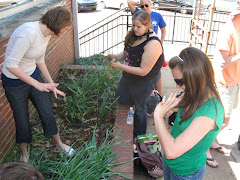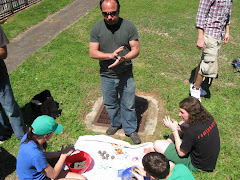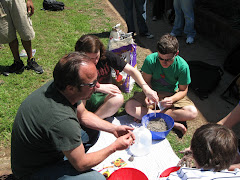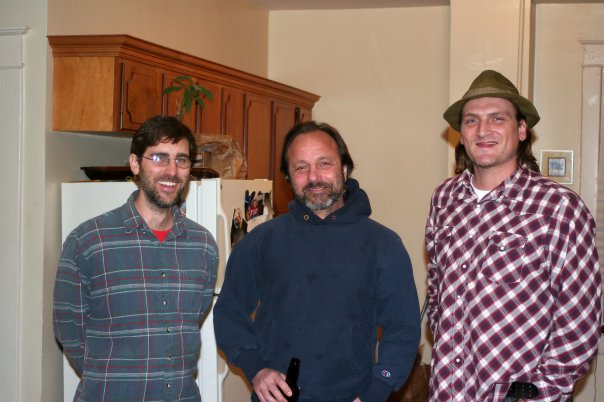In a passing discussion (about MTR and an upcoming presentation by Dave Cooper from the Mountaintop Removal Roadshow) with the chair of my department, he mentioned the need for a rooftop garden on top of Peck Hall (our office and classroom building) as a energy-saving measure. I hadn't thought much about the topic before, but it dawned on me that having students write Green Roof proposals might be a fruitful activity. When I took the job here (at MTSU) last fall, I remember the chair telling me about the Green Energy initiative that students had passed a few years back (the largest student-voter turn out in school history) whereby each student pays an additional 8 bucks on their tuition every year so that the school can purchase "green energy." Half the money goes toward the purchase; the other half goes into an energy conservation fund that's available for other conservation projects. So...now the wheels are spinning. There's money to be had to convert some unsuspecting rooftop into a garden oasis--or at least a green roof.
Now I'm telling my students that there's a localized, sustainable, and fun answer to their question "what can we do locally to address the raping and pillaging of Appalachia?" You will propose a green roof. In other words, we will help our university save energy and by saving energy, use less. Use less what? Coal, of course. We're in the heart of TVA country, and TVA is one of the biggest consumers of Appalachian coal in the world. Sure, they sell a little green energy here and there, but the vast majority of their power generation is fueled by dirty rock. The vast majority of our university's energy comes from coal. If we can reduce our consumption (and it's proven that greenroofing, particularly in the hottest months, can dramatically reduce the amount of energy consumed by absorbing the sun's heat and putting it to good use--photosynthesis--thereby keeping buildings naturally cooler inside and eliminating the need to turn the air-conditioning way down), we can reduce the demand. This, obviously, won't stop the coal industry from pursuing their business, but it is a way for people, institutions, businesses, municipalities to see their own connection to the problem and take a little step toward a better, more informed future.
Subscribe to:
Post Comments (Atom)

















No comments:
Post a Comment